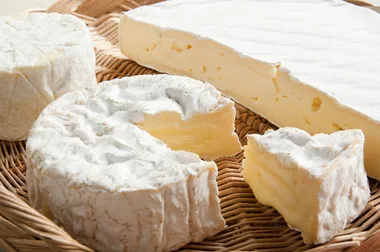Looking for an alternative to cooking with coconut oil? Whether you’re fresh out, have an allergy or are simply averse to the taste, there are plenty of reasons as to why you might need to find a suitable replacement.
WATCH: Coconut Oil Uses
Here, we’ve rounded up five dairy-free coconut oil substitutes that you probably have stocked in your pantry already.
What is coconut oil?
Coconut oil comes from the flesh of mature coconuts that have been harvested from palm trees. It’s extracted through an array of methods, which is why you’ll likely find a few different options on supermarket shelves.
Refined coconut oil is typically cheaper, milder in flavour and has a subtler aroma. The unrefined version (also known as virgin coconut oil) is derived from fresher, younger coconuts and is deemed to be of higher quality and richer in antioxidants. Both varieties melt at 24°C and are typically solid when stored at room temperature.
Is coconut oil healthy?
Coconut oil is one of the most commonly used oils in the culinary realm, despite there being much debate over how beneficial regular consumption is for our health.
Many celebrities and wellness coaches spruik it as natures cure-all, claiming that it aids digestion, increases fat burning and provides your brain with a sustainable boost of energy.
One study from the University of Cambridge found that unlike other sources of saturated fats, coconut oil raises the good HDL cholesterol in the blood which has been proved to reduce the risk of heart disease. It also contains lauric acid, a medium-chain triglyceride that has antimicrobial properties. As a result, some research suggests that coconut oil may reduce inflammation and improve immune and cognitive function.
Despite this, the Australian Dietary Guidelines recommend limiting your intake:
“Replace high-fat foods which contain predominately saturated fats such as butter, cream, cooking margarine, coconut and palm oil with foods which contain predominantly polyunsaturated and monounsaturated fats such as oils, spreads nut butters/pastes and avocado.”
1. Almond oil
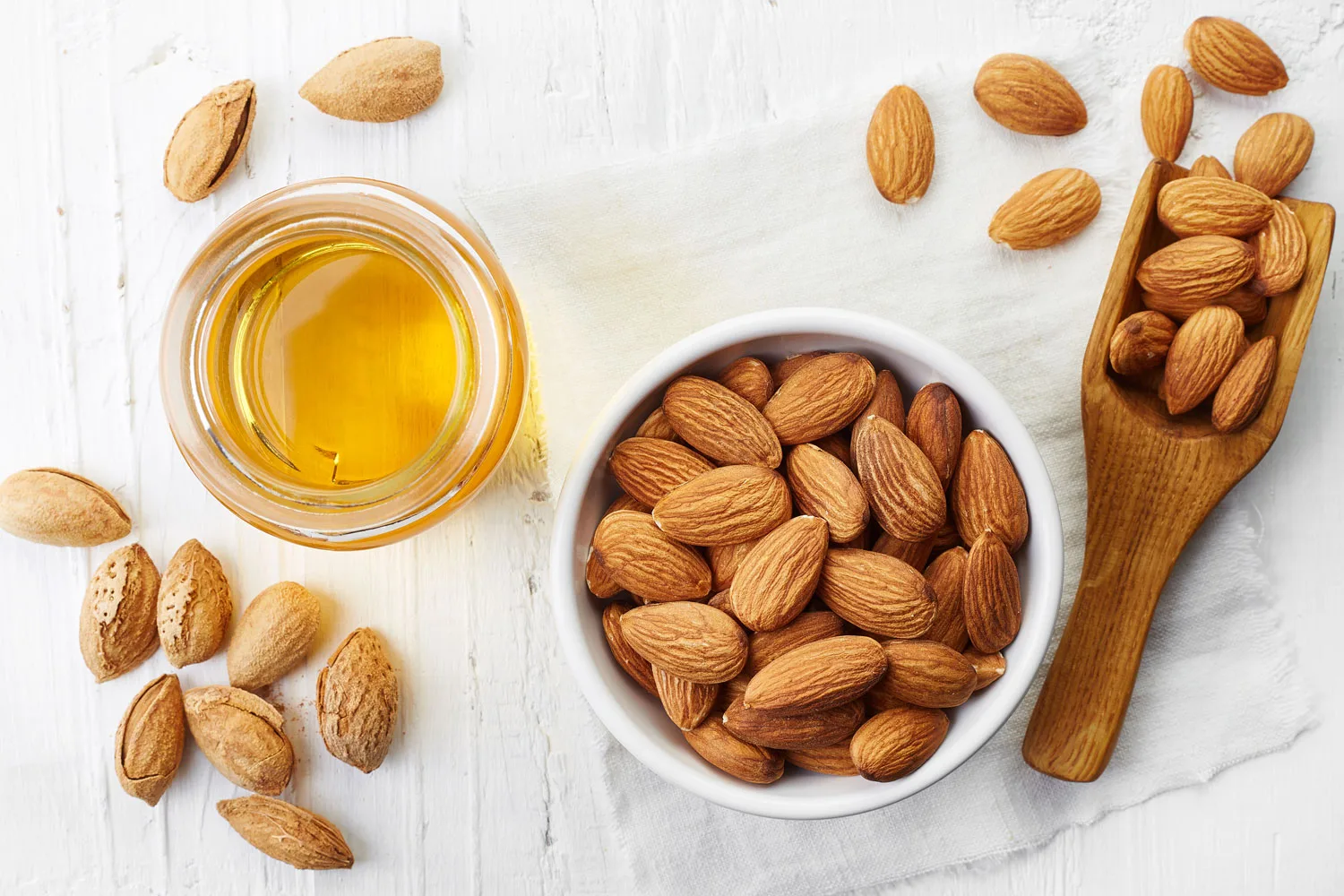
Almond oil is one of the best dietary sources of vitamin E – with one tablespoon containing (5mg) or 26 percent of an average adult’s daily requirements. It is also low in saturated fat, rich in monounsaturated fats and has been linked to improved cardiovascular health.
Almond oil is nutty in taste and works well with dishes with complementary flavours. It has a high smoke point and is suitable for pan-frying and in baked goods.
Best used for: cookies, cakes and muffins.
2. Avocado oil
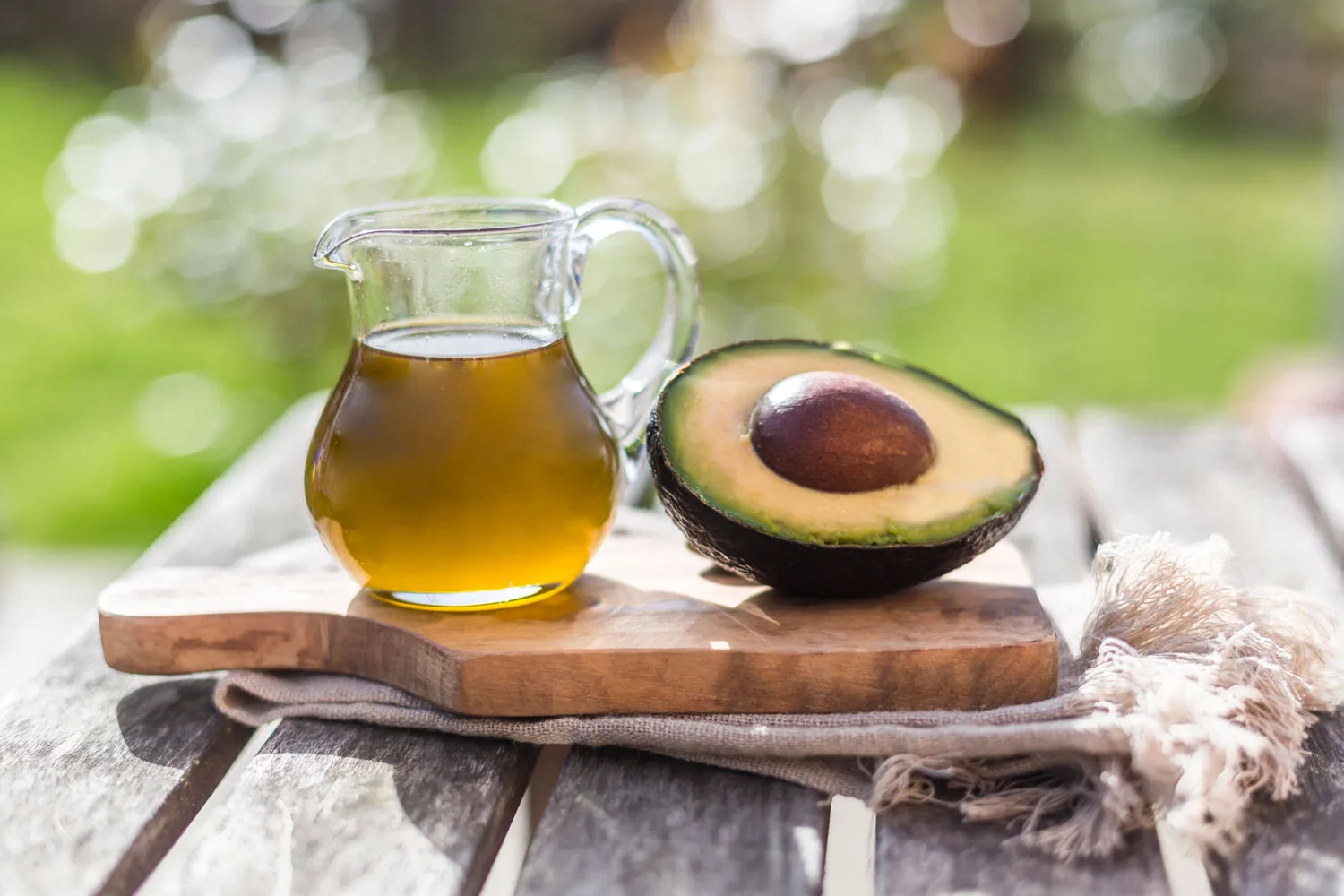
Avocado oil boasts high levels of monounsaturated fatty acids and contains high levels of oleic acid, carotenoids, lutein, vitamin E and phytosterols – all of which help to reduce inflammation in the body.
It has a mild grassy flavour and buttery texture, making it more neutral than olive oil, especially once cooked. It has a smoke point of 271°C and is ideal for grilling, baking and sautéed dishes.
Best used for: salads, soups and curries.
3. Hemp seed oil
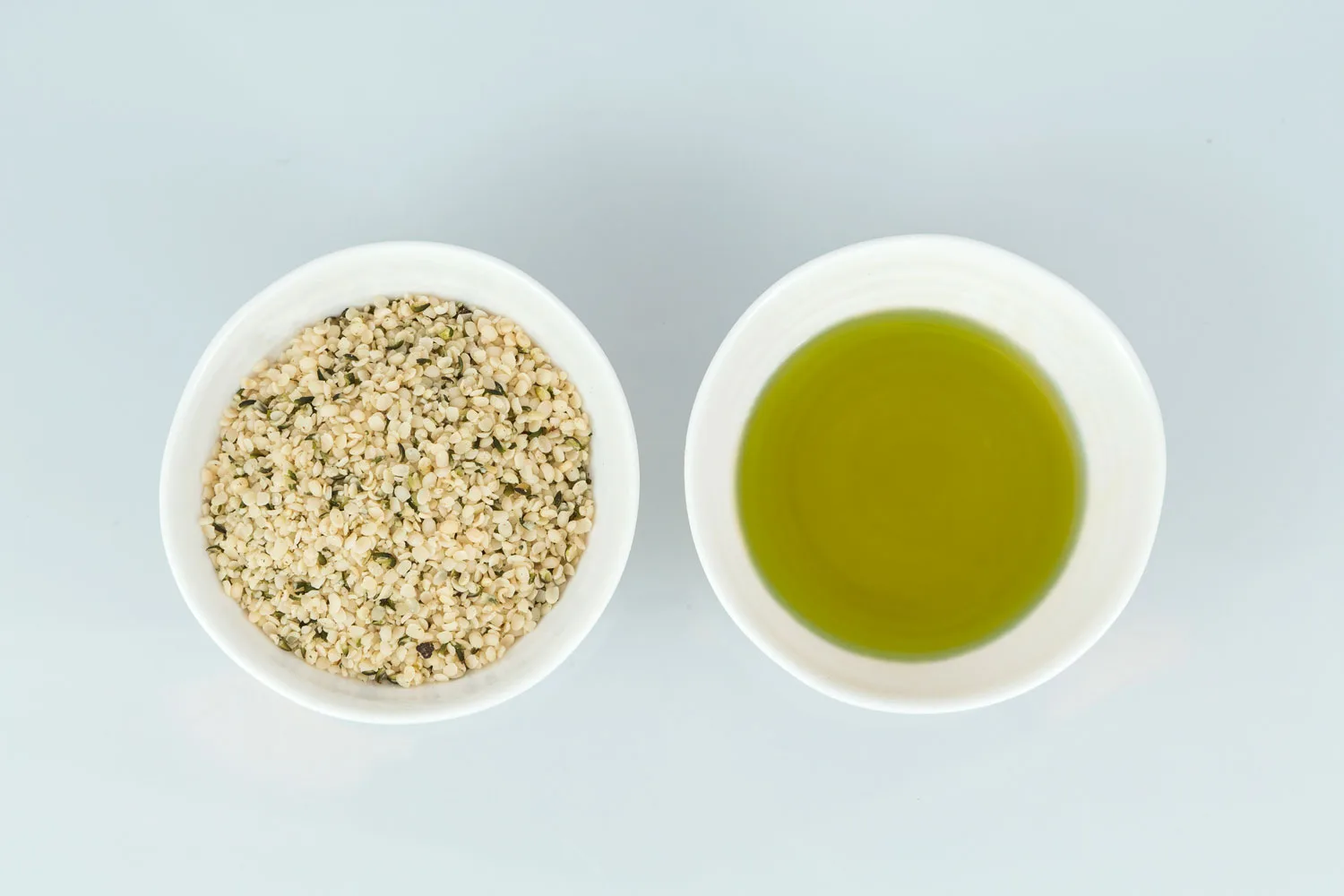
Hemp oil supplies the body with all 9 essential amino acids and contains a whopping 10g of protein per 2Tbsp serving. It’s also an exceptionally rich source of essential fatty acids, which are necessary for energy production, strengthening the immune system and improving brain function.
Hemp oil has a strong earthy taste that is perfect for use in salad dressings. As it loses most of its nutritional value when heated, it is best used cold or at room temperature.
Best used for: marinades, pesto and dips.
4. Grapeseed oil
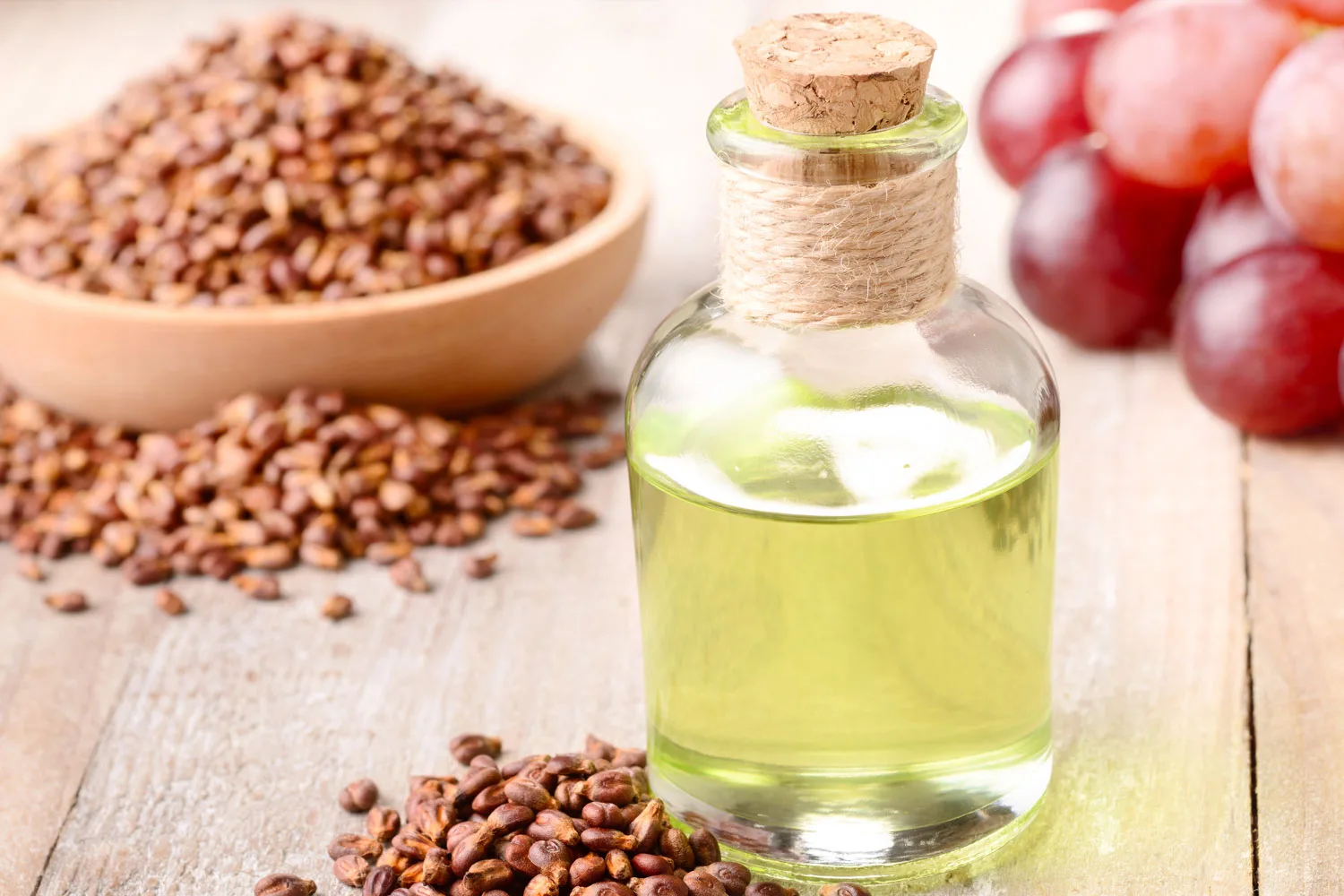
Grapeseed oil is cholesterol-free and contains very little saturated fat. It is mainly made up of polyunsaturated fats (like omega-6s and omega-9 fatty acids) that have been tied to lower cholesterol and improved heart health.
It has a clean, light flavour and is fat-soluble, making it an incredibly versatile option for creamy dressings that won’t separate when chilled. Because of its moderately high smoking point, grapeseed oil is also an excellent choice for fried and sautéed dishes.
Best used for: mayonnaise, salad dressings and roasted vegetables.
5. Hazelnut oil
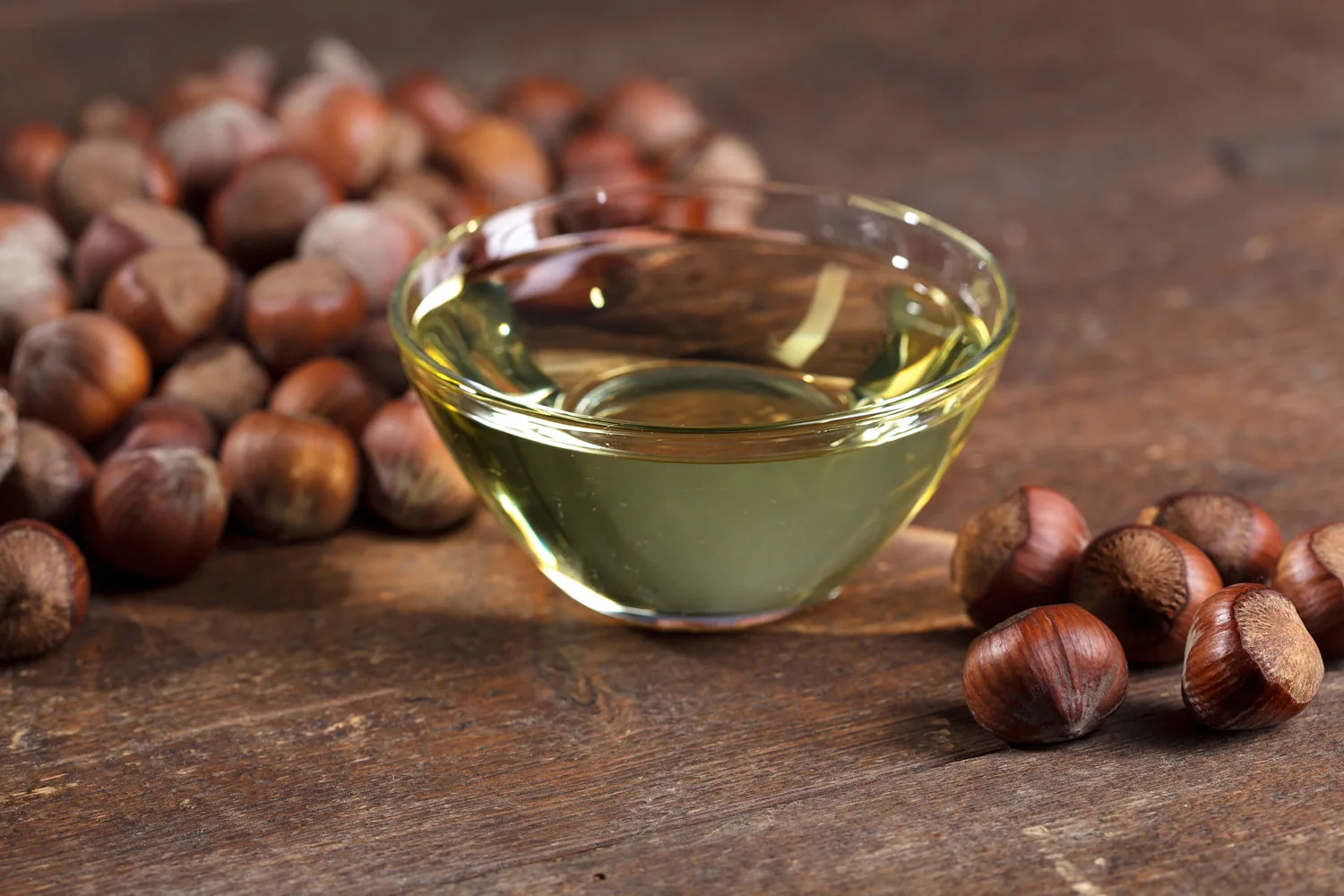
Hazelnut oil is a great source of minerals such as potassium, calcium and magnesium. As nearly 80 per cent of the fat present in hazelnut oil is monounsaturated, it is favourable for lowering blood cholesterol, reducing fat deposits and aiding weight loss.
It has an intense, toasty flavour and is incredibly fragrant, making it the perfect addition to sweets and baked goods. Unlike most unrefined oils, it has a high smoke point (221°C) which means it’s also suitable for roasting, frying and grilling.
Best used for: spreads, butters and sauces.
You may also like
Six unusual ways to use coconut oil around the house
These are the 6 best substitute for vegetable oil







